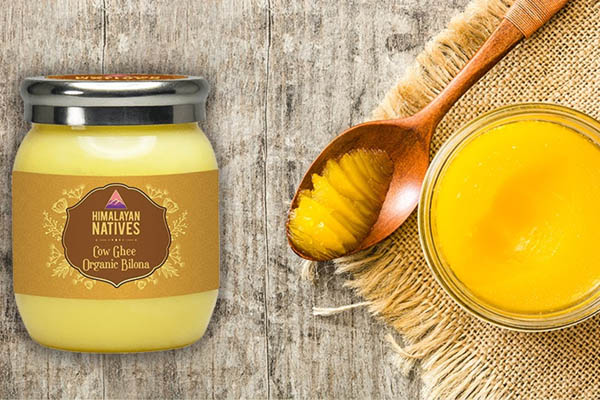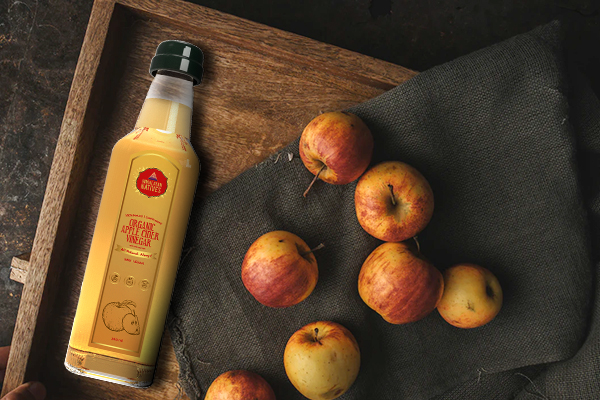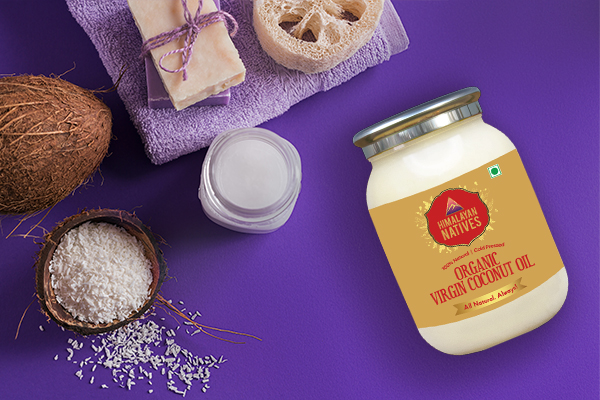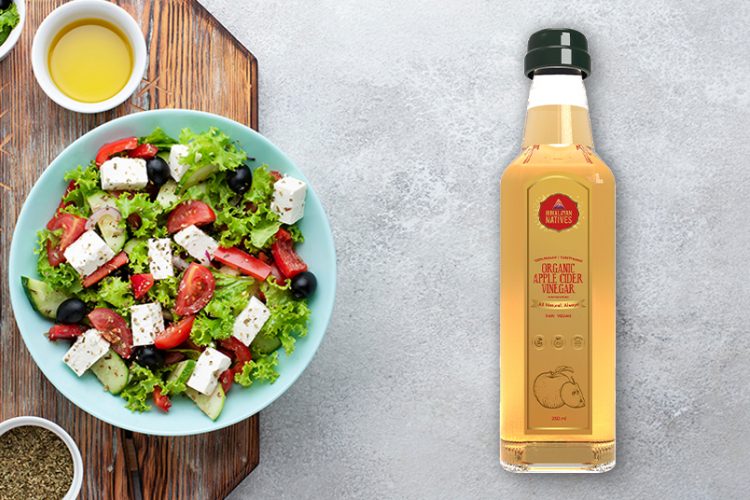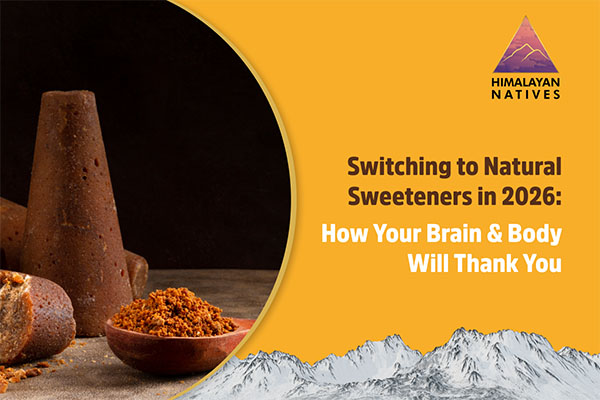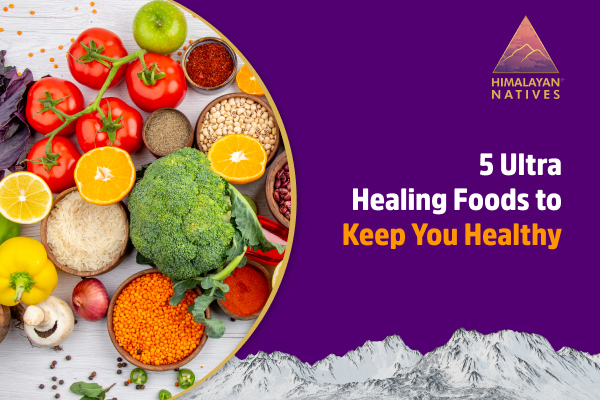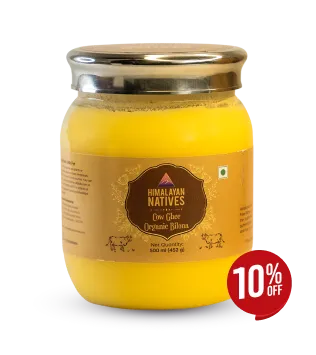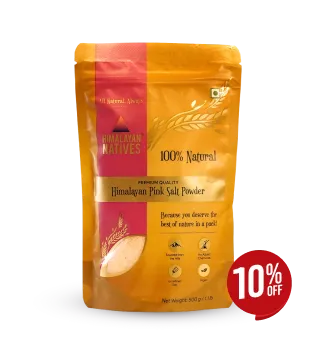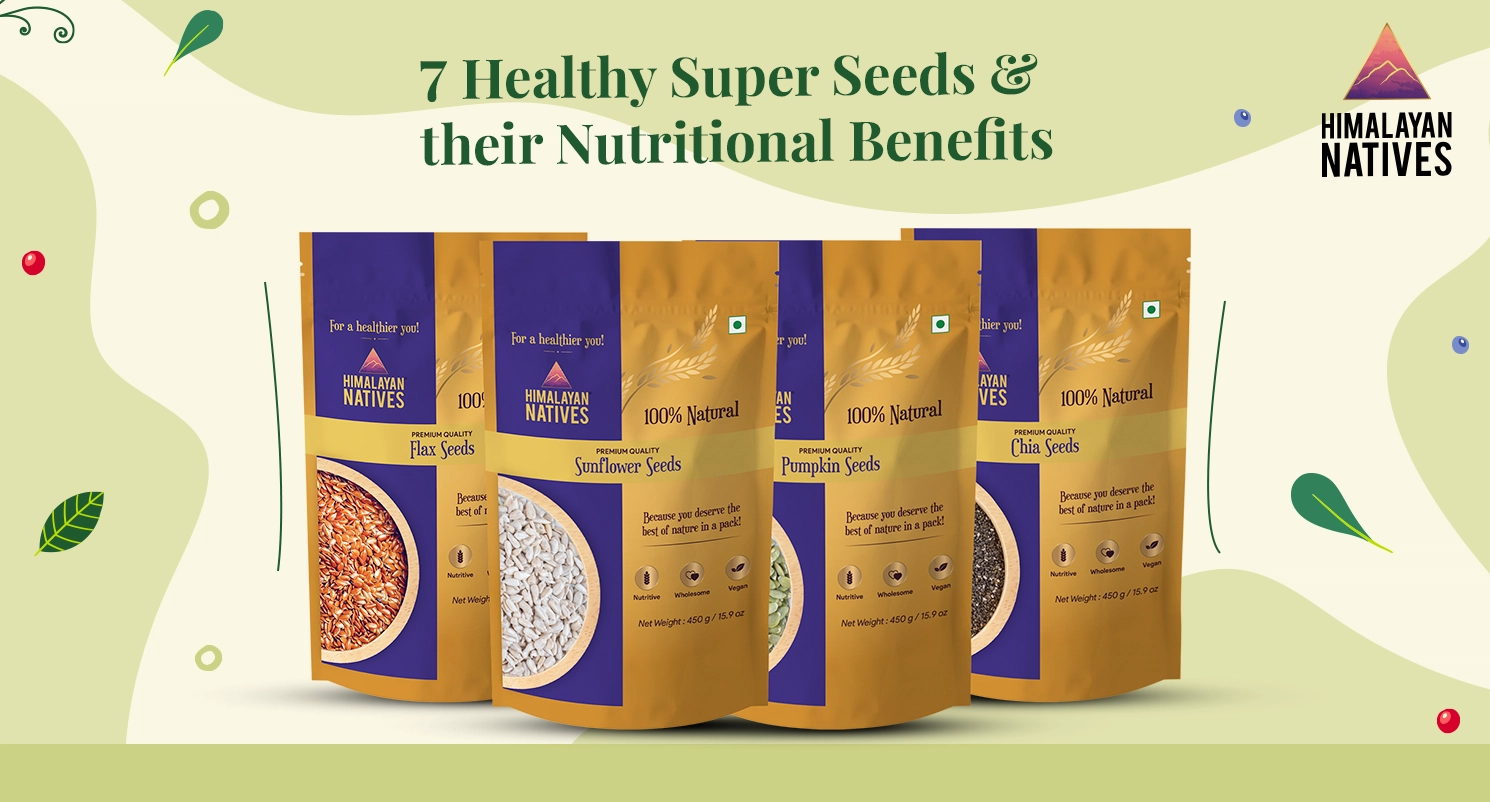
This is no surprise, India’s edible seed consumption and market have grown by 4.5% annually, in the past 3 years.
Now you would wonder how did this happen?
It's clear why there has been such a drastic increase in the consumption of these plant nutrition and high protein seeds; when people are aware of their health benefits and the authenticity of the food product, it's easy to see why.
A fun fact: The largest consumers of these healthy seeds in India are the states of Uttar Pradesh, Madhya Pradesh, Maharashtra, Rajasthan, and Andhra Pradesh, accounting for a combined 53% of the total consumption.
Robert Louis Stevenson said:
"Don't judge each day by the harvest you reap but by the seeds that you eat.”
With that said, let’s move further in this blog and know why even you should add these super seeds in your diet starting today.
7 Types of Seeds You Should Eat Regularly
It’s time to know about 7 such naturally power-packed seeds, the essential nutrients and the health benefits they have to offer. You will also get to know the exact seeds' nutrition content per 100 gm of serving.
1. Basil Seeds: Also popularly known as Sabja seeds, these are small black seeds native to Asia and the Middle East. They are known for their sweet, nutty flavour and are a great source of dietary fibre, vitamins, minerals and antioxidants. Basil seeds are packed with nutrients such as Vitamin A, Vitamin K, magnesium, calcium, iron, phosphorus, zinc, and potassium.
Did you know 100 gm of Basil seeds contains:
Calories: 331 kcal
Protein: 18.5 gm
Carbohydrates: 58.2 gm
Fiber: 8.2 gm
Calcium: 216 mg
Iron: 5.9 mg
Magnesium: 264 mg
Zinc: 3.2 mg
Vitamin A: 689 IU
Vitamin C: 34.6 mg
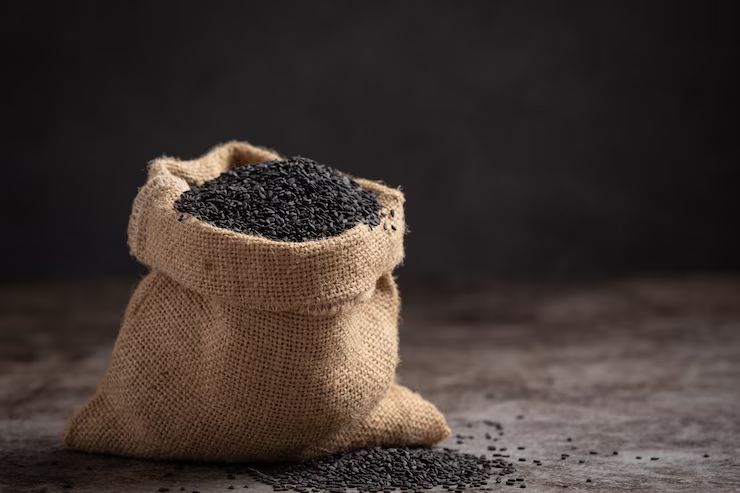
Additionally, they are a great source of dietary fibre and protein, making them a great choice for a healthy snack.
Basil seeds have been linked to a number of health benefits such as
Improved digestion
Weight loss
Improved blood sugar levels
Better Heart Health
Help reduce inflammation and may even have anti-cancer properties
2. Chia Seeds: These are one of nature's most powerful superfoods and probably one of the best seeds for weight loss. Chia seeds are an excellent source of energy and nutrition and are a great addition to any meal. Chia seeds are versatile and can be used in a variety of ways in your daily diet. They can be added to smoothies, oatmeal, yoghurt, salads, or baked goods.
Did you know 100 gm of Chia seeds contains:
Protein: 17.6 g
Fat: 30.74 g
Carbohydrates: 42.12 g
Dietary Fiber: 34.4 g
Calcium: 631 mg
Magnesium: 335 mg
Iron: 7.72 mg
Zinc: 5.07 mg
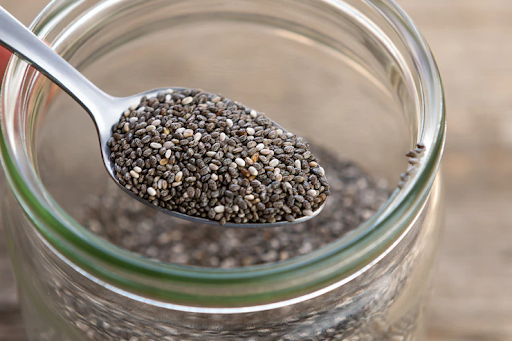
They are rich in fibre, omega-3 fatty acids, protein, calcium, magnesium, and other essential minerals. The health benefits of chia seeds include:
Better Digestive Health
Heightened energy levels
Weight management
Improved Heart Health
Helps with the prevention of diseases such as diabetes and cancer.
Grab these incredibly healthy Chia seeds online from the link above.
3. Flax Seeds: They have been around for centuries and have recently become increasingly popular due to their health benefits. Flax seeds are a rich source of plant compounds that are thought to have antioxidant and anti-inflammatory properties.
Flax seeds can be added to a variety of dishes, from smoothies and yoghurt to salads and baked goods. They can also be ground up and used as a flour substitute.
Here’s the nutritional composition of Flax Seeds/100gm:
Calories: 534 kcal
Protein: 18.3 g
Monounsaturated Fat: 10.3 g
Polyunsaturated Fat: 27.3 g
Carbohydrates: 28.9 g
Fiber: 27.3 g
Vitamin E: 7.4 mg
Calcium: 253 mg
Iron: 7.7 mg
Magnesium: 392 mg
Zinc: 4.1 mg
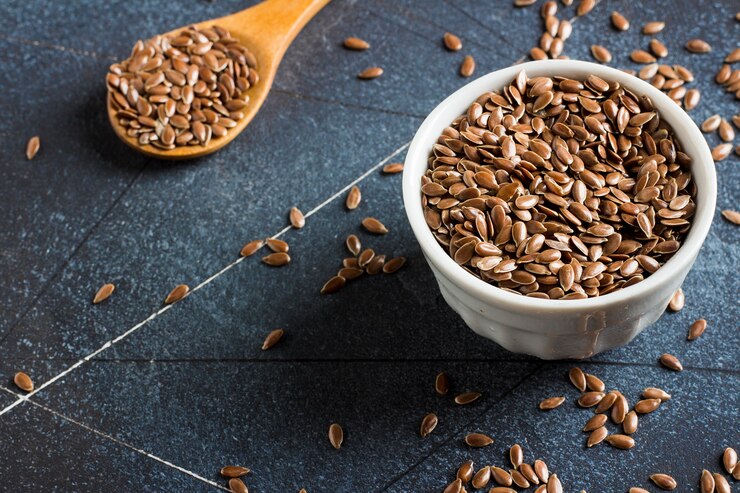
Studies have linked the consumption of flax seeds to a decreased risk of heart disease, stroke, cancer, and type 2 diabetes. It also has some incredible benefits for skin and weight loss such as:
Rich in Omega-3 fatty acids, which are essential for optimal health
The soluble and insoluble fibre content helps keep your digestive system running smoothly
Great source of plant-based proteins, beneficial for vegetarians and vegans
Good source of antioxidants, which can help protect your cells from damage caused by free radicals
May help reduce total and LDL (bad) cholesterol levels
May help lower both systolic and diastolic blood pressure
Its Vitamin E content can help you keep healthy skin
4. Garden Cress Seeds: Also known as Halim Seeds, are a nutritional powerhouse and are an excellent addition to any diet. Also a popular ingredient in Ayurvedic and traditional medicines. These tiny seeds are popular because of their peppery flavour and wide range of uses. Garden cress seeds can be used in salads, sandwiches, soups, and even as garnish.
Wondering about its nutritional composition per 100gm, check this:
Calories: 431 kcal
Protein: 21.2 g
Carbohydrates: 21.3 g
Fiber: 12.3 g
Iron: 6.3 mg
Calcium: 967 mg
Zinc: 6.9 mg
Vitamin A: 997 IU
Vitamin C: 5.1 mg
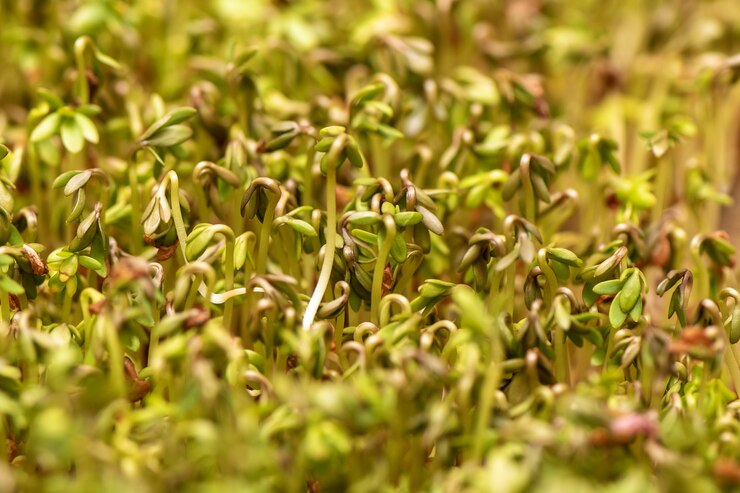
They are also known to have beneficial effects on digestion and have been used in traditional medicine for centuries. Some major health benefits of Garden Cress Seeds are
A good source of antioxidants, such as carotenoids, which may help reduce oxidative stress and protect against chronic diseases.
Contains enough Iron, which is essential for healthy red blood cells and oxygen transport throughout the body.
Vitamin C content may help fight infection and disease.
High in dietary fibre and protein, which may help to suppress appetite and support weight loss.
5. Pumpkin Seeds: A type of edible seed typically harvested from a pumpkin or certain other varieties of squash. They are highly nutritious and contain a wide variety of vitamins, minerals, and antioxidants.
They are consumed as a popular snack and are also used in a variety of seed recipes and are especially high in magnesium, zinc, and manganese.
The nutritional composition of Pumpkin Seeds per 100 gm is as follows:
Calories: 559 kcal
Protein: 30.23 g
Carbohydrates: 16.51 g
Fiber: 10.6 g
Iron: 8.2 mg
Potassium: 564 mg
Zinc: 15.56 mg
Magnesium: 44.5mg
Manganese: 1.0 mg
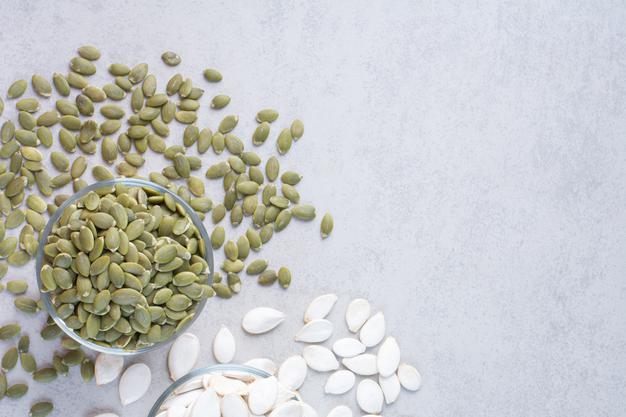
Pumpkin seeds are believed to have anti-inflammatory properties and may help to reduce the risk of certain cancers, reduce cholesterol levels, and improve heart health. They are also a good source of protein, making them a great choice for vegetarians and vegans.
These seeds are high in magnesium, Zinc and Antioxidants that provide us with health benefits like
Helps maintain healthy blood pressure
Keeping the bones strong
Helps regulate blood sugar levels
Boosting the immune system
Helps with wound healing
Keeping the digestive system healthy by promoting regular bowel movements and can help to lower cholesterol levels
It’s important to note that you are consuming the most naturally farmed and harvested seeds in your daily diet to get the most out of what these have to offer.
Make sure you get them from a trusted and natural food products brand such as Himalayan Natives.
6. Sunflower Seeds: A popular snack and food ingredient, they are harvested from sunflower plants. These are a great source of nutrition, and they are also tasty and can be eaten as a convenient snack.
They are also popular to use in salads, trail mixes, and homemade granola bars. Sunflower seeds are also a great option to use as a crunchy topping for oatmeal, yoghurt, or salads.
The nutritional composition of Sunflower Seeds per 100gm:
Calories: 584 kcal
Fat: 50.2 g
Carbohydrates: 20.2 g
Fiber: 9.5 g
Protein: 21.6 g
Vitamin E: 36.4 mg
Vitamin B6: 0.4 mg
Magnesium: 270 mg
Manganese: 2.3 mg
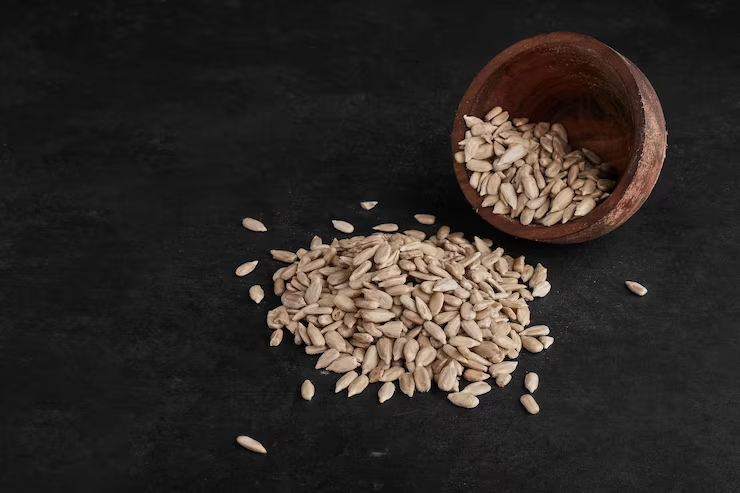
Sunflower seeds have been used for centuries for their medicinal properties, including treating skin conditions, digestive ailments, and relieving stress. Their health benefits include:
An excellent source of Vitamin E, a fat-soluble vitamin that contributes to healthy skin and hair, boosts the immune system, and protects against some cancers.
Packed with powerful antioxidants, including phenolic acids, flavonoids, and lignans. This help protects the body from oxidative damage caused by free radicals which can lead to chronic diseases.
Good source of healthy fats, including monounsaturated and polyunsaturated fats. These fats are beneficial for heart health and can help reduce cholesterol levels.
Rich in magnesium, phosphorus, and selenium. These minerals help keep bones strong and may even reduce the risk of some cancers
Protein rich which is essential for repairing and rebuilding muscle tissue and plays an important role in metabolism.
7. Quinoa: It is an ancient grain that has been gaining popularity in recent years as a superfood. It is a gluten-free, high-protein grain that is packed with essential amino acids, minerals, and vitamins.
A versatile grain that can be used in a variety of recipes, from salads and soups to pilafs and casseroles. It is also a great addition to veggie burgers, stir-fries, and smoothies. Quinoa is a great choice for vegetarian and vegan diets, as it contains all nine essential amino acids.
Here’s the nutritional composition of Quinoa/100gm:
Calories: 120 kcal
Protein: 4.4 g
Carbohydrates: 21.3 g
Fiber: 2.8 g
Calcium: 31 mg
Iron: 2.76 mg
Potassium: 318 mg
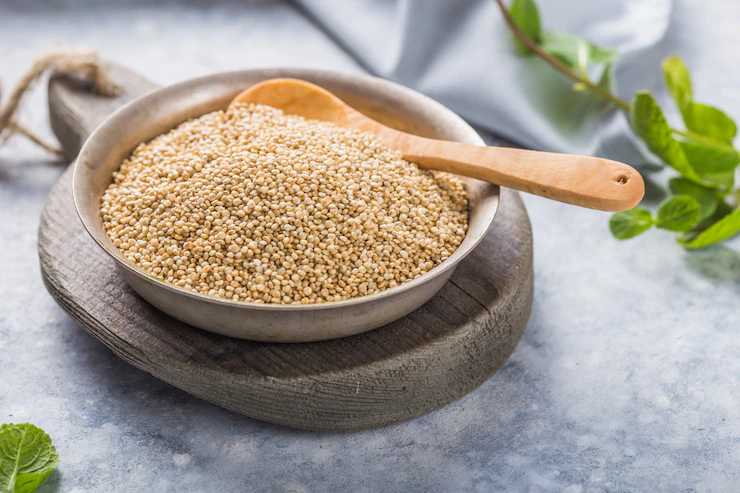
Quinoa is a great choice for a healthy diet, as it can be used in a variety of dishes and is a good source of many vital nutrients. Some more health benefits of Quinoa are as follows:
An excellent source of protein for vegans and vegetarians.
Helps promote regularity, aids digestion, and can help lower cholesterol
Naturally gluten-free and safe for those with celiac disease or other gluten allergies or sensitivities
Great for bone health, energy production, and immunity
Has a low glycemic index, which means it can help control blood sugar levels. This makes it an ideal food for people with diabetes
A heart-healthy food due to its high levels of fibre, protein, and omega-3 fatty acids
Now that you know all the seeds' nutrition value, health benefits and ways to consume these natural foods, let’s look at from where you can get your hands on the most premium and natural quality seeds in India.
But just before that, If you found this blog interesting and helpful, we are sure you would love to give this a read too: Quick & Easy Breakfast Recipes to Start Your Day Right.
From Where to Buy Seeds in India?
This might be a trouble for most of us, given the availability of numerous options in the market. And we will make it simple for you, all you need to do is look for a brand that has the following:
Uses all-natural and unrefined ingredients
Uses sustainable and ethical farming and harvesting practices
Is transparent about their production processes
Uses minimal packaging and focuses on waste reduction
Has an emphasis on health, nutrition, and quality
Educates consumers on the benefits of natural foods
Offers a variety of products and recipes to meet different dietary needs and lifestyle preferences
Supports local farmers and communities
We at Himalayan Natives believe that strength is in nature and bring our loved customers the best of nature right at their doorstep.
Eating natural and healthy foods is essential for your mind and body. Not only does it keep your body healthy and energized, but it also helps you maintain a healthy weight and improves your overall well-being.
Not only that, but eating natural food products also helps to reduce your carbon footprint and supports local businesses. Making the switch to a healthier lifestyle with natural food products is an important step in taking care of our bodies, as well as the environment.
So join us on this journey of a healthy lifestyle, check out our Instagram for more insightful healthy tips and natural food recipes.
 HELPFUL0 people found it helpful
HELPFUL0 people found it helpful
Related Blogs
Subscribe to Our Blogs
and never miss on the latest update!







